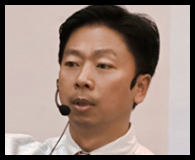Featuring John K. Chen, Ph.D., Pharm.D., O.M.D., L.Ac. from Evergreen Herbs
On January 16, 2019 we hosted a free webinar.
Attendees learned about using TCM to help patients resolve opioid addiction.
Webinar attendees gained knowledge in the following areas:
- The impact the opioid crisis has on patients in the US and the common drugs used by the Western medical community to help.
- Acupuncture and Electro Acupuncture Tx suggestions to treat opioid addiction.
- Specific Chinese Herbal Formulas that can help treat addiction.
 Questions not answered during the Webinar:
Questions not answered during the Webinar:
Q: I must ask you about Pradaxa and dabigatran risks for bleeding with acupuncture.
A: Drugs or herbs that have an anticoagulant, antiplatelet or thrombolytic effect will increase risks of bleeding and bruising. So research beyond the “indication” of the drug or herbs, and look into the pharmacology so you will know exactly what the effect and side effects are. I trust that you will be able to find the answer to your question.
Q: Will Evergreen formulate some addiction formulas in their specialty collection? Or have I missed them?
A: As I mentioned in the seminar, the key to successful detox including:
- Treatment of pain
- Treatment of craving
- Treatment of the withdrawal signs and symptoms
- Treatment of underlying imbalance.
We discussed 5 formulas and about 10 single herbs – those are great places to start. In addition, depending on the addiction, other formulas will be needed, such as treatment of lung for smoking addiction, treatment of liver for alcohol addiction, etc.
Q: What about Blood Pressure and that dose of Gan Cao?
A: Use of Gan Cao at a large dose for a long period of time may cause water retention, which may then increase blood pressure. You may solve that issue by changing the harmonizing herb to Da Zao (Fructus Jujubae), reduce the dosage or duration of Gan Cao (Radix et Rhizoma Glycyrrhizae), or add herbs with diuretic effect to reduce water retention, such as Ze Xie (Rhizoma Alismatis), Zhu Ling (Polyporus), etc.
Q: Can you describe in TCM terms a bit more detail about how drugs disturb the Shen?
A: Drugs disturb shen (spirit) in two main ways. One is drugs that stimulate the cardiovascular and metabolic system (ie, stimulants). From a TCM perspective, these drugs cause “heart fire” and disturb shen (spirit). Then there are drugs that alter the brain chemistry and disturb the balance of neurotransmitters, such as opioids, benzodiazepines, etc. These drugs have a strong sedative / hypnotic effect, and when discontinued, cause significant yin deficiency, deficiency heat, and disturbed shen (spirit).
Q: Thank you for your lecture! Do you know of any other webinars or speakers you’d recommend on this topic?
A: Lotus Institute hosted the following class: Theoretical Frameworks of Addiction and TCM by Craig Fiorini, L.Ac.
https://www.elotus.org/live/theoretical-frameworks-addiction-and-tcm
Q: Can tramadol be useful in substituting for oxycodone use?
A: Tramadol is also an opioid, so it will have a similar effect and side effects.
SUMMARY:
Our host John Chen, Ph.D., Pharm.D., O.M.D., L.Ac. from Evergreen Herbs discusses the current state of the opioid crisis and the role that Acupuncture and TCM can play in helping to resolving it. He discusses and provides suggestions for drug, acupuncture and Chinese herbal treatments for opioid addiction.
What our webinar is about:
- The impact the opioid crisis has on patients in the US and the common drugs used by the Western medical community to help.
- Acupuncture and electro-acupuncture Tx suggestions to treat opioid addiction.
- Specific Chinese Herbal Formulas that can help treat pain and addiction.
Who Should Attend:
- Practitioners and Acupuncture Students looking to expand their knowledge in treating opioid addiction
- Practitioners with specific questions about acupuncture/electro-acupuncture and herbal formula protocols to treat addiction
ABOUT OUR SPEAKER
 FAST & FREE 2-DAY DELIVERY
FAST & FREE 2-DAY DELIVERY


